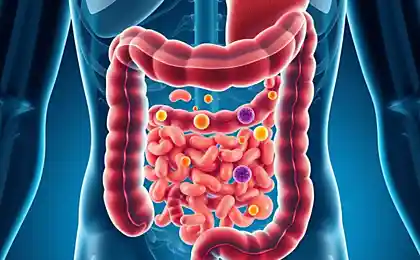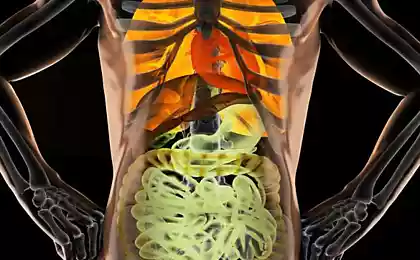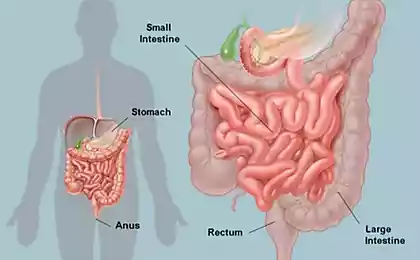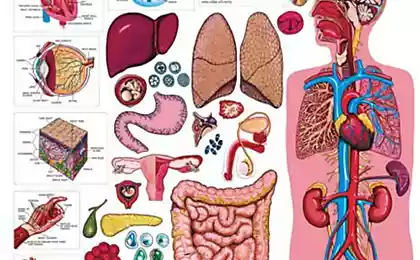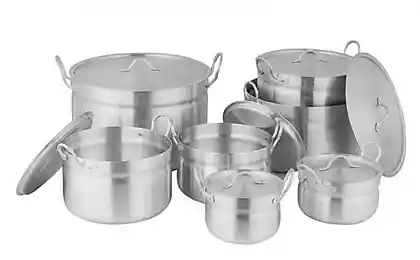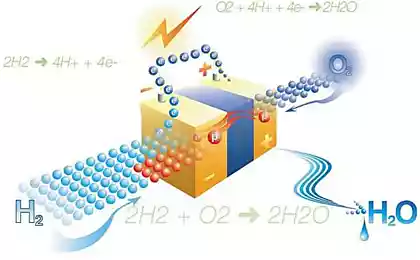476
Celiac disease — not a genetic disease, and the protective reaction of a healthy body on junk food
We all love buns, white bread, pasta, cakes and everything else that is made out of wheat. Wheat is considered a necessary product. But wheat there is a hidden side, which is familiar to those who suffer from celiac disease. Celiac disease is only the tip of the iceberg. The bulk of the iceberg is hidden from the classical diagnostic methods.
Recently, new methods of diagnosis (antibody testing) to identify wheat intolerance for 20-30% of the world population (particularly affected Europeans). Now it becomes clear that celiac disease is not inherited genetic disease as previously thought. What we eat and the living conditions, regulates our DNA.
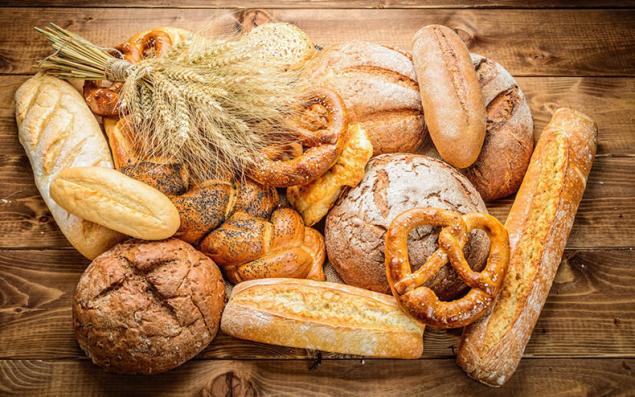
As it is now to be considered celiac disease? This is a manifestation of a protective reaction to food that has never been a specific diet for the human body. Ie, celiac disease is not a reaction of the unhealthy body into a healthy meal. The opposite is true — it is protective reaction of a healthy body on junk food, i.e. a defensive reaction to wheat is initially toxic for people.
Incidentally, the word gluten comes from Latin for glue, which means glue.
If we view celiac disease as a healthy reaction to unhealthy food (incompatible with our bodies), then the classic symptoms of celiac disease begin to acquire some meaning. So, diarrhea is aboutorganism gets rid of the toxic mess that is going in the gut. Atrophy of the intestinal walls is a way to reduce the absorption of toxins in the body through the wall.
Wheat and other cereals are the source of many symptoms that the doctors come up with different names and it now looks like many different diseases. And the reason is one — the incompatibility of cereals with our digestive system.Remove grains from the diet — and a series of symptoms will gradually disappear by itself.
Interestingly it is noticed that those who do not have the classic symptoms of celiac disease, suffer no less — just manifest it differently. For example, a kidney disease. The author cites an interesting fact: in 2007 in the journal International Journal of Cancer had information about the study of the influence of bread to kidney cancer. It was noticed, that those who eat a lot of bread, the risk of getting kidney cancer by 94% higher than those who eat little bread. Almost half. That's a lot. And if the use of bread is directly related to kidney cancer, it is not directly bread (and flour) can be associated with other types of cancer.
Considered by itself that wheat is good for you. It is believed that grains is as necessary to health as, for example, water. This idea sits firmly in our heads. Therefore, it is difficult to accept a different point of view, despite the many facts.
We tell ourselves all sorts of other explanations, but do not want to face the truth: wheat and other cereals — it is not food for people. Biologically we are not perfect. Another 10,000-12,000 years ago nobody was eating any wheat, nor rye, nor barley, nor oats. Our bodies are not adapted to grain.
And other mammals, such as cows, though, and can eat wheat as a plant (wheat grass), can't eat wheat without harm to health. Grain — this is the future of the plant. It is clear that grains have to protect themselves from being eaten, to have a chance to germinate. And, indeed, the grains contain toxic lectins, phytates, peptides, oxalates, and lots of other toxic both for us and for cows substances.
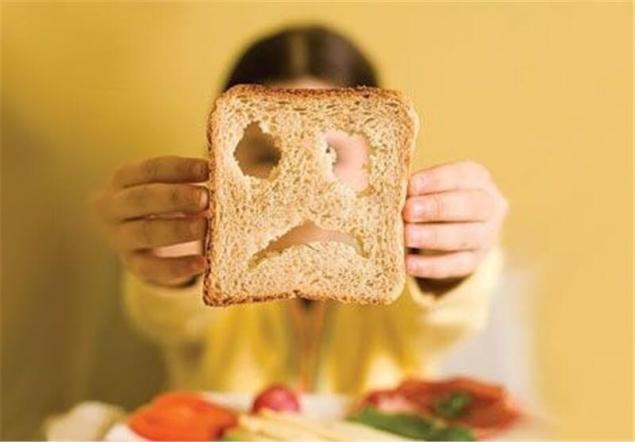
So, without getting into scientific terminology — what is wrong with wheat?
1. Destroys the structure of the intestinal wall. Villi (villi) lining the walls, damaged.
2. Increases the permeability of the intestinal wall. This causes penetration into the body of large molecules of food, which should not penetrate. And this causes a number of problems: heart disease, liver problems and auto-immune diseases.
3. Some substances in wheat can enter the brain and disrupt its work. Problems such as autism, schizophrenia and other neurological conditions can be caused by gluten. In wheat also has opioid-like substance. That's why we like bread and flour because wheat has some narcotic properties.
(Maybe it was one of the reasons why people started eating grains 10-12 thousand years ago.)
4. A substance in wheat — lectin — through the intestinal wall into the blood and thus gets distant from the bowel where they cause problems (e.g., kidney cancer and possibly other cancers). In addition, this ingredient promotes weight gain and increases the risk of diabetes.
5. Wheat peptides similar to some cells of our body, and this similarity also cause malfunctions in the body.
6. Some amino acids in wheat cause neurological damage in the body: multiple sclerosis, a disease of Alheimer, epilepsy and others.
Michael Grothaus: As a rejection of sugar changed my lifeexercises for the correction of facial asymmetry
The information above is a synopsis of the great English-language article about the dangers of wheat. The author, Sayer Ji, consultant of the industry for the production of natural products and the founder of the very well-known and respected us website GreenMedInfo.com. published
Source: www.horosheezdorovje.ru/o-vrede-pshenicy-1/
Recently, new methods of diagnosis (antibody testing) to identify wheat intolerance for 20-30% of the world population (particularly affected Europeans). Now it becomes clear that celiac disease is not inherited genetic disease as previously thought. What we eat and the living conditions, regulates our DNA.

As it is now to be considered celiac disease? This is a manifestation of a protective reaction to food that has never been a specific diet for the human body. Ie, celiac disease is not a reaction of the unhealthy body into a healthy meal. The opposite is true — it is protective reaction of a healthy body on junk food, i.e. a defensive reaction to wheat is initially toxic for people.
Incidentally, the word gluten comes from Latin for glue, which means glue.
If we view celiac disease as a healthy reaction to unhealthy food (incompatible with our bodies), then the classic symptoms of celiac disease begin to acquire some meaning. So, diarrhea is aboutorganism gets rid of the toxic mess that is going in the gut. Atrophy of the intestinal walls is a way to reduce the absorption of toxins in the body through the wall.
Wheat and other cereals are the source of many symptoms that the doctors come up with different names and it now looks like many different diseases. And the reason is one — the incompatibility of cereals with our digestive system.Remove grains from the diet — and a series of symptoms will gradually disappear by itself.
Interestingly it is noticed that those who do not have the classic symptoms of celiac disease, suffer no less — just manifest it differently. For example, a kidney disease. The author cites an interesting fact: in 2007 in the journal International Journal of Cancer had information about the study of the influence of bread to kidney cancer. It was noticed, that those who eat a lot of bread, the risk of getting kidney cancer by 94% higher than those who eat little bread. Almost half. That's a lot. And if the use of bread is directly related to kidney cancer, it is not directly bread (and flour) can be associated with other types of cancer.
Considered by itself that wheat is good for you. It is believed that grains is as necessary to health as, for example, water. This idea sits firmly in our heads. Therefore, it is difficult to accept a different point of view, despite the many facts.
We tell ourselves all sorts of other explanations, but do not want to face the truth: wheat and other cereals — it is not food for people. Biologically we are not perfect. Another 10,000-12,000 years ago nobody was eating any wheat, nor rye, nor barley, nor oats. Our bodies are not adapted to grain.
And other mammals, such as cows, though, and can eat wheat as a plant (wheat grass), can't eat wheat without harm to health. Grain — this is the future of the plant. It is clear that grains have to protect themselves from being eaten, to have a chance to germinate. And, indeed, the grains contain toxic lectins, phytates, peptides, oxalates, and lots of other toxic both for us and for cows substances.

So, without getting into scientific terminology — what is wrong with wheat?
1. Destroys the structure of the intestinal wall. Villi (villi) lining the walls, damaged.
2. Increases the permeability of the intestinal wall. This causes penetration into the body of large molecules of food, which should not penetrate. And this causes a number of problems: heart disease, liver problems and auto-immune diseases.
3. Some substances in wheat can enter the brain and disrupt its work. Problems such as autism, schizophrenia and other neurological conditions can be caused by gluten. In wheat also has opioid-like substance. That's why we like bread and flour because wheat has some narcotic properties.
(Maybe it was one of the reasons why people started eating grains 10-12 thousand years ago.)
4. A substance in wheat — lectin — through the intestinal wall into the blood and thus gets distant from the bowel where they cause problems (e.g., kidney cancer and possibly other cancers). In addition, this ingredient promotes weight gain and increases the risk of diabetes.
5. Wheat peptides similar to some cells of our body, and this similarity also cause malfunctions in the body.
6. Some amino acids in wheat cause neurological damage in the body: multiple sclerosis, a disease of Alheimer, epilepsy and others.
Michael Grothaus: As a rejection of sugar changed my lifeexercises for the correction of facial asymmetry
The information above is a synopsis of the great English-language article about the dangers of wheat. The author, Sayer Ji, consultant of the industry for the production of natural products and the founder of the very well-known and respected us website GreenMedInfo.com. published
Source: www.horosheezdorovje.ru/o-vrede-pshenicy-1/
The big secret dealers: how to recognize a battered car
How to quit Smoking: 3 tools that will help you cope with Smoking




